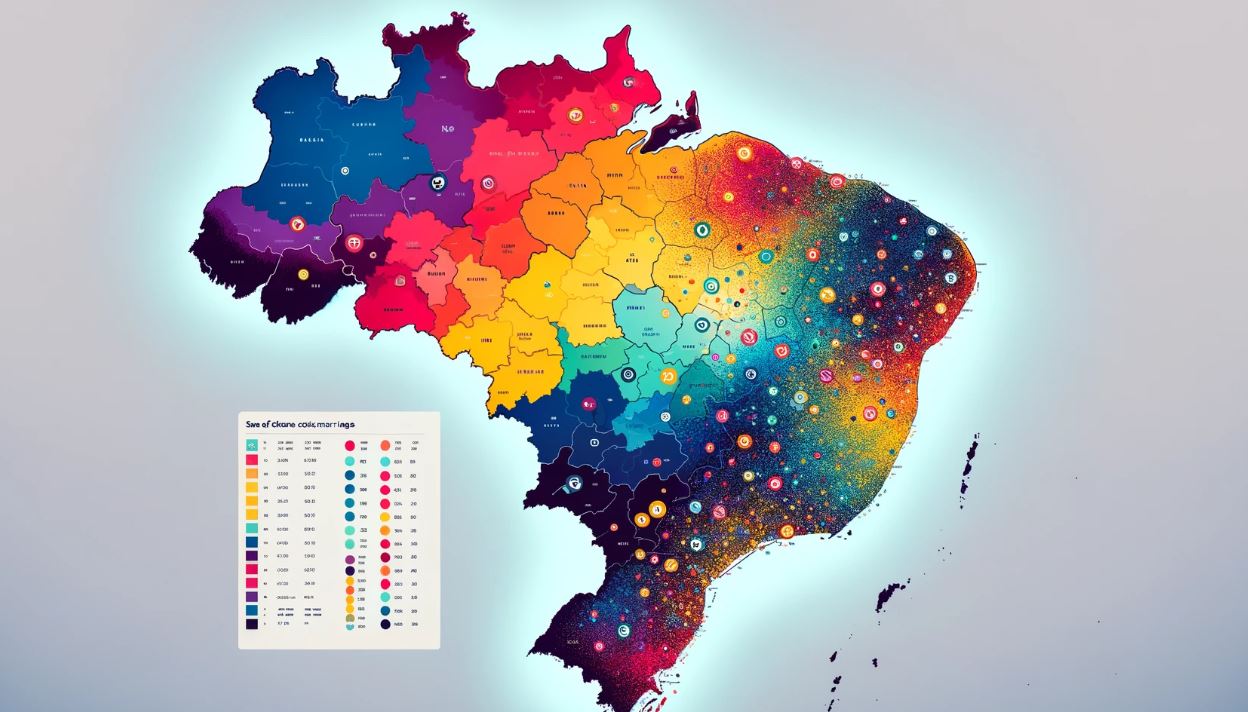The Rise of Same-Sex Marriages in Brazil
Brazil has witnessed a significant surge in same-sex marriages, according to a recent study by the National Observatory of Human Rights (ObservaDH). The data, reported by Agencia Brasil, indicates a 148.7% increase in same-sex marriages between 2013 and 2021, marking a progressive shift in the societal and legal landscape of South America’s largest country.
MDHC Research and IBGE Statistics
The Ministry of Human Rights and Citizenship (MDHC) synthesized this study using data from the Civil Registry statistics of the Brazilian Institute of Geography and Statistics (IBGE). From just 3,700 registrations in 2013, the number soared to 9,202 in 2021. A significant yearly increase was noted between 2017 and 2018, with same-sex marriages accounting for 0.6% of all marriages in Brazil, a rise from 0.4% in 2013 to 1% in 2021. Notably, 57.1% of these marriages were between women.
Symmy Larrat on LGBTQIA+ Rights
Symmy Larrat, the National Secretary for LGBTQIA+ Rights in Brazil, emphasized that these figures underscore the importance of legal protection for same-sex individuals in fostering a more equitable Brazil. She stressed the relevance of equity and guaranteed rights for the entire population.
Regional Distribution of Same-Sex Marriages
The Southeast region recorded the highest proportion of same-sex marriages (0.8%), while the North had the lowest (0.3%). Santa Catarina and São Paulo registered the highest percentages, with the former having 1.1% of all marriages being same-sex. The Southeast also led in female same-sex marriages over nine years, accounting for 58.8% of the national total, whereas the North had the fewest registrations.
Comparison with Heterosexual Marriages
From 2013 to 2021, no same-sex marriages involving partners under 15 years were recorded by the IBGE. In contrast, heterosexual marriages saw 1,988 cases involving girls and 158 involving boys under 15 years. Marriages with children under 16 are prohibited by the Civil Code, with no exceptions since 2019.
Health and Income of Homosexual Individuals
Over 76% of homosexual individuals rated their health as very good or good, higher than bisexual (67.3%) and heterosexual (66.1%) individuals. In terms of physical activity and income, lesbians and gays reported higher levels of both, with 12% earning more than five minimum wages, compared to lower percentages among bisexuals and heterosexuals. Additionally, bisexuals, lesbians, and gays reported higher education levels than heterosexuals.
ObservaDH and Legal Equality
Launched in December 2023 by the MDHC, ObservaDH is a public online platform gathering human rights indicators across various segments. It aims to disseminate strategic information and assist in public policy planning, monitoring, and evaluation. In May 2011, the Federal Supreme Court equated same-sex relationships with stable unions between men and women, recognizing same-sex unions as a family nucleus. Following this, the National Council of Justice issued Resolution 175 in 2013, mandating the registration and celebration of same-sex marriages nationwide.
Current Legislative Controversy
In October, a bill banning same-sex marriage was approved by the Chamber of Deputies’ Commission on Welfare, Social Assistance, Children, Adolescents, and Family, sparking protests from civil society and LGBTQIA+ community representatives who deem it unconstitutional and a violation of equality principles.
Frequently Asked Questions (FAQs)
- What is the percentage increase in same-sex marriages in Brazil from 2013 to 2021 ?
- There has been a 148.7% increase in same-sex marriages during this period.
- Which region in Brazil has the highest and lowest rates of same-sex marriages ?
- The Southeast region has the highest rate, while the North has the lowest.
- What is the legal stance of Brazil on same-sex marriages ?
- Since 2013, Resolution 175 mandates the registration and celebration of same-sex marriages, equating them with heterosexual unions in legal terms.
- How does the health and income of homosexual individuals compare to heterosexuals in Brazil ?
- Homosexual individuals generally report better health, higher income, and more physical activity compared to their heterosexual counterparts.
- What is the current controversy surrounding same-sex marriage legislation in Brazil ?
- A recent bill proposed to ban same-sex marriages has been met with opposition, being labeled unconstitutional and discriminatory.














+ There are no comments
Add yours